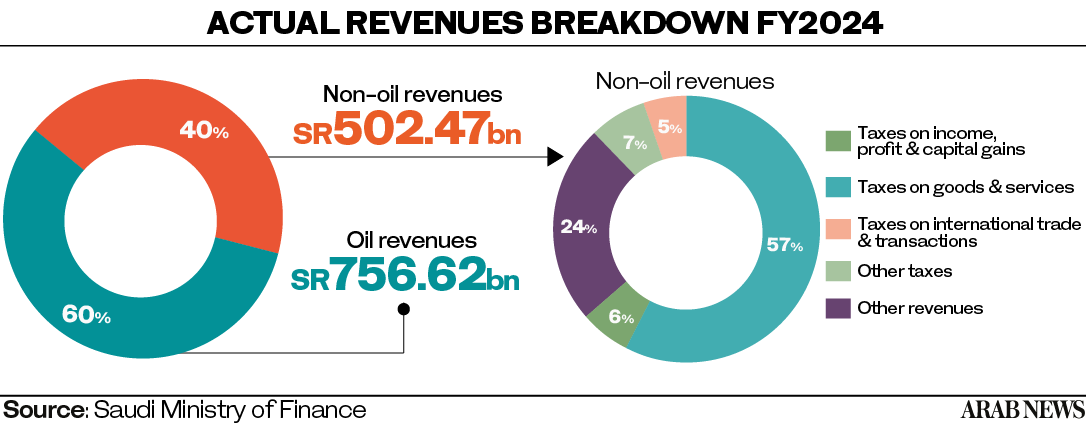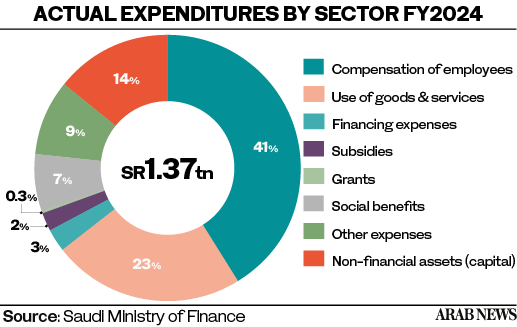RIYADH: Saudi developer ROSHN has signed a deal with Johnson Controls Arabia to introduce advanced cooling technology, strengthening the Kingdom’s push for energy efficiency, said a senior executive.
In an interview with Arab News on the sidelines of the first day of the Public Investment Fund Private Sector Forum taking place from Feb. 12-13 in Riyadh, Johnson Controls Arabia CEO Mohanad Al-Shaikh explained that the new deal signed with the PIF firm seeks to supply a specialized type of engineered variable refrigerant flow technology that is new to the region to encourage local manufacturing.
This falls in line with Saudi Arabia’s efforts to localize technologies and develop national capabilities in the energy sector, supporting the goals outlined in the Kingdom’s Vision 2030.
It also aligns well with Saudi Arabia’s commitment to have 50 percent of its electricity capacity from renewable sources by 2030.
“It’s (VRF) a technology that allows for a higher level of efficiency of systems to be included in buildings. It targets actually a couple of things. The main thing is the energy efficiency. The energy efficiency ratio of the VRF technology is much better than the traditional on-off technologies that we’ve always used in our houses,” Al-Shaikh said.
“It’s a technology that allows for higher level of efficiencies and it also allows building owners to use less number of machines. So, even for the look and feel of buildings, using this technology would be much better than what we’re used to in our region,” he added.
The CEO emphasized that this step aims to promote localization and local manufacturing, boosting the private sector’s contribution to gross domestic product and increasing the share of industrialization within it, which is in line with Vision 2030.
During the interview, Al-Shaikh highlighted the heating, ventilation, and air conditioning market from a macro level.
“HVAC as an industry, you’re talking about a total market size of $120 billion in the world. In Saudi, we’re talking about SR18 billion ($4.79 billion), the annual sales of HVAC systems. This is growing, actually, in 2025 versus 2024, we’re expecting about 8 percent increase year over year,” he said.
The CEO also underlined how ROSHN has been expanding, saying: “I mean, we’re seeing the projects all across the Kingdom, and this is for us, hopefully, is the first of many, to come and we have signed, this with ROSHN, but we also have other signatures coming up with other PIF companies for mega and giga-projects.”
Al-Shaikh then tackled Johnson Controls Arabia’s operations in the Kingdom.
“We are a company that was established long, long ago. So, our first project was in Jeddah about 75 years ago, under the brand name York. We have about 26 different brands under the Johnson Controls Arabia umbrella. Our flagship, when it comes to HVAC, is the York brand name. Our manufacturing facility in Jeddah is the largest in the Middle Eastern and Africa region in terms of the production capacity and also the footprint of the facility. We have about 11 production lines,” he said.
The CEO added: “We do manufacture products that range from what we use for small to the large to big mega and giga jobs like airports, medical facilities, and cities. And we also have within the facility, we have full-fledged research and development center, labs, testing labs for small residential units and also up to 600-tonne units, and I’m talking about large testing facility.”
Al-Shaikh emphasized that this came as a result of collaboration as well as Saudi Arabia’s vision to localize.
He also disclosed that products manufactured in Saudi today actually comply with products sold in the North American market and Europe.
“This VRF technology, same technology with no modification, has the same level of certification. We’re able to supply it to other places globally. And as I said, the manufacturing facility has allowed us to sell to about 26 different countries in the region. Of course, in the Middle East, but also we’ve reached the North American market by supplying scroll chillers technologies to the US this past year,” the CEO said.
Al-Shaikh mentioned the company’s production capacity, noting that until two years ago, it only manufactured 30 percent of the products it sold in the Kingdom.
“We closed 2024, whereby we are manufacturing 90 percent of what we sell in Saudi the total capacity of the factory,” he said.
“We do have a target in 2025 to have almost 25 to 30 percent of that production capacity going for the North American market because, I mean, our technology, the certifications we have, the type of transfer of technology is allowing us actually not only to serve the Saudi market, but the regional and the global market,” the CEO added.
Moving on to suppliers, Al-Shaikh justified the long-term plan that will potentially see them residing in the Kingdom.
“We are dealing with almost 400 suppliers in our manufacturing facilities. We use about 40,000 different parts to manufacture our finished products. Unfortunately, many of the suppliers are not residing in the Kingdom, and it’s actually a challenge for local manufacturers because when it comes to supply chain resilience, you’ve seen during Corona time, it was an issue. So, while you’re manufacturing the finished goods in Saudi, if your supply chain is not also surrounding you, then it becomes an issue,” he said.
“What we’re trying to do now in collaborations with different partners like the PIF and other companies is to localize and increase our localization targets year over year, whereby and attracting manufacturers of parts to be also near our facility or at least be in the Kingdom. So, the perfect condition is where you’re creating that integrated supply chain similar to the automotive industry where everyone is actually residing in one cluster,” the CEO added.
Al-Shaikh also tackled the outlook on the future of the building technologies and export market in Saudi Arabia.
“Now, with the development of AI and the machine learnings, the focus is shifting not only on the HVAC, on the hardware, but also shifting to on the IT and how you bridge the gap between the IT and the OT, the operational technologies and the information technologies. Because when we talk about net zero and the aim and the aspiration of countries and companies to reach that level, working on the hardware by itself will not allow you to achieve that net zero,” he said.
“So there has to be a linkage between the OT and the IT, and that’s what we’re trying to do in our manufacturing facility,” the CEO added.
























